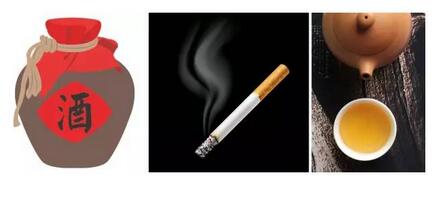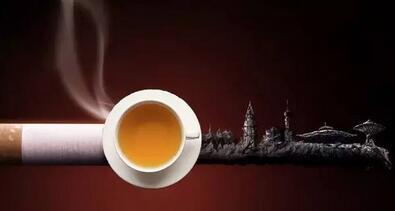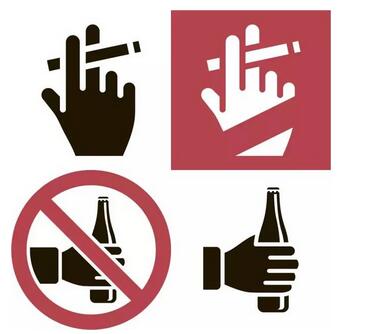Although tobacco, alcohol, and tea are all habit-forming consumer goods, their effects on health differ significantly, and they should not be treated as belonging to the same category. The common pairings of tobacco and alcohol, tobacco and tea, or alcohol and tea are not always reasonable.

1. Tobacco and Alcohol: Keep Them Separate
Since its introduction to China during the Ming Dynasty, tobacco has evolved from medicinal use to widespread daily consumption. Today, China is the world's largest consumer of cigarettes, accounting for one-third of the global smoking population.
Smoking is harmful to health. Cigarette smoke contains over 4,000 chemical substances, more than 50 of which are carcinogenic. Cigarettes also act as free radical generators, increasing the risk of cancer.
Combining smoking and drinking multiplies the harm. Many people unconsciously smoke more while drinking, especially during social gatherings. This habit is far more detrimental than smoking or drinking alone.

Nicotine in cigarettes lowers blood alcohol concentration, leading smokers to drink more. Alcohol, in turn, dissolves the carcinogens in tobacco, allowing them to spread more deeply throughout the body.
2. Tobacco and Tea: A Better Pair
China is the birthplace of tea and tea culture, with a long and rich history. Today, tea is ranked as the world's top non-alcoholic beverage, beloved globally.
Tea is an ideal healthy drink. Low in irritation and rich in flavor, its polyphenols, theanine, and vitamins offer both medicinal and nutritional benefits, quenching thirst and soothing the mind.

For smokers, drinking tea can help. Tea polyphenols inhibit free radicals and suppress cancer cell growth. Drinking two to three cups daily may reduce the cancer risk associated with smoking.
3. Tea and Alcohol: A Poor Match
China is also the homeland of alcohol and its culture, now a global social custom.
Excessive drinking harms health, leading to diseases like liver cirrhosis and cardiovascular issues. While moderate drinking may benefit circulation, combining it with tea can worsen intoxication symptoms.

Drinking tea while intoxicated is ineffective. Tea's diuretic effect may expel alcohol prematurely, burdening the kidneys with residual toxins.
4. Quit Smoking, Drink Less, Enjoy More Tea
Do smokers and drinkers always live shorter lives? Not necessarily. Does drinking tea guarantee immunity from illness? Of course not.
Health depends on multiple factors like genetics, environment, and mental state. However, quitting smoking, reducing alcohol, and drinking more tea is a sensible choice for most. Tea, in particular, is a habit worth maintaining.

Science shows that the 'addiction' to tobacco, alcohol, or tea stems from dopamine, a neurotransmitter that induces pleasure. While these substances boost dopamine, healthier alternatives like tea can offer similar benefits without the harm.

Choosing whether to smoke or drink is a balance between 'health risks' and 'stress relief.' But there are better ways to relax—like a cup of tea. In a noisy world, everyone deserves tranquility and the subtle fragrance of tea.